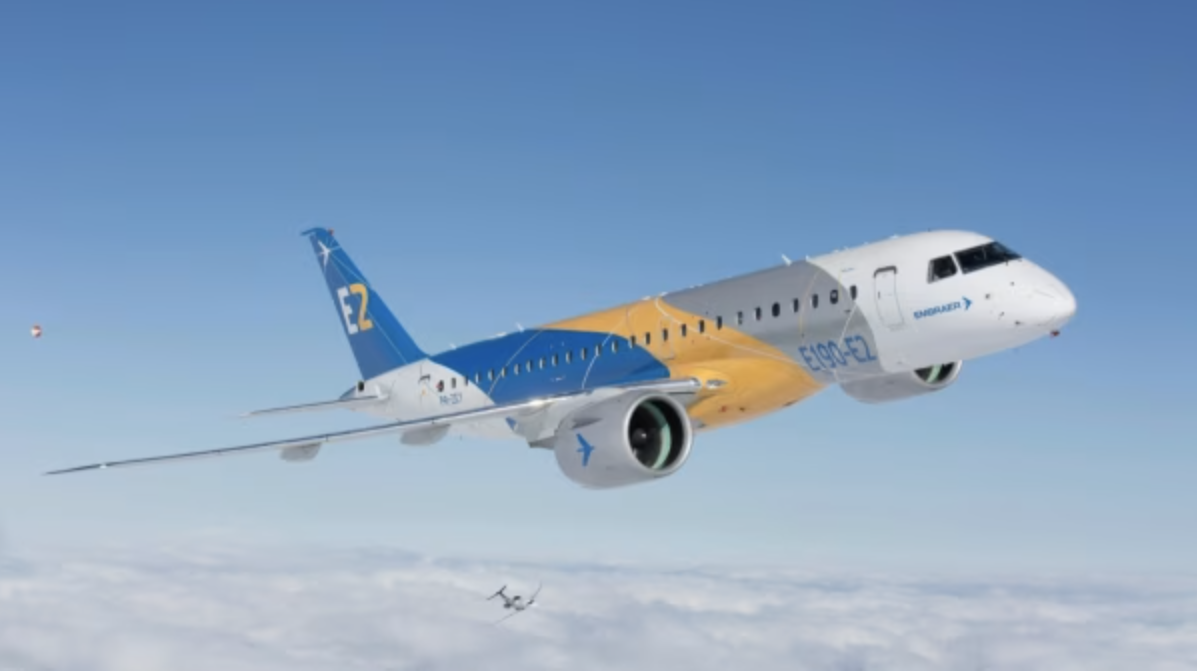
Image: Embraer
Embraer has achieved a significant milestone with its E190-E2 and E195-E2 aircraft receiving 120-minute extended twin-engine operations (ETOPS) approval. This endorsement from Brazil’s ANAC, the US FAA, and the European Union’s EASA allows the aircraft to undertake direct routes over water and remote areas, enhancing efficiency for operators in Australia and the Asia-Pacific by reducing flight times and fuel consumption.
This development comes at a pivotal time for Virgin Australia Regional Airlines (VARA), which is evaluating whether to incorporate the E190-E2 or the Airbus A220-100 into its fleet to replace its older Fokker 100 planes. The decision is part of a broader fleet renewal strategy that has been impacted by delivery delays of the Boeing 737 MAX aircraft due to ongoing issues at Boeing.
The ETOPS-120 certification was previously delayed by the pandemic, which restricted the amount of necessary operational hours. The E2 series boasts several advancements over its predecessors, such as geared turbofan engines, which significantly enhance fuel efficiency and performance.
Arjan Meijer, President and CEO of Embraer Commercial Aviation, highlighted the certification’s importance, stating, “ETOPS is a crucial capability for the E2 series, bolstering its appeal and sales potential in the Asia-Pacific region.”
In a related development, Northrop Grumman Australia and L3Harris have formalised an agreement to bolster the Australian-based support workforce for the Royal Australian Air Force’s MQ-4C Triton fleet. This partnership underscores a significant advancement in the RAAF’s deployment of the MQ-4C Triton, focusing on enhancing the operation and maintenance of the aircraft’s sophisticated command-and-control systems. This collaboration aims to strengthen the multi-intelligence capabilities of the unmanned aircraft, ensuring robust support for its critical missions.


